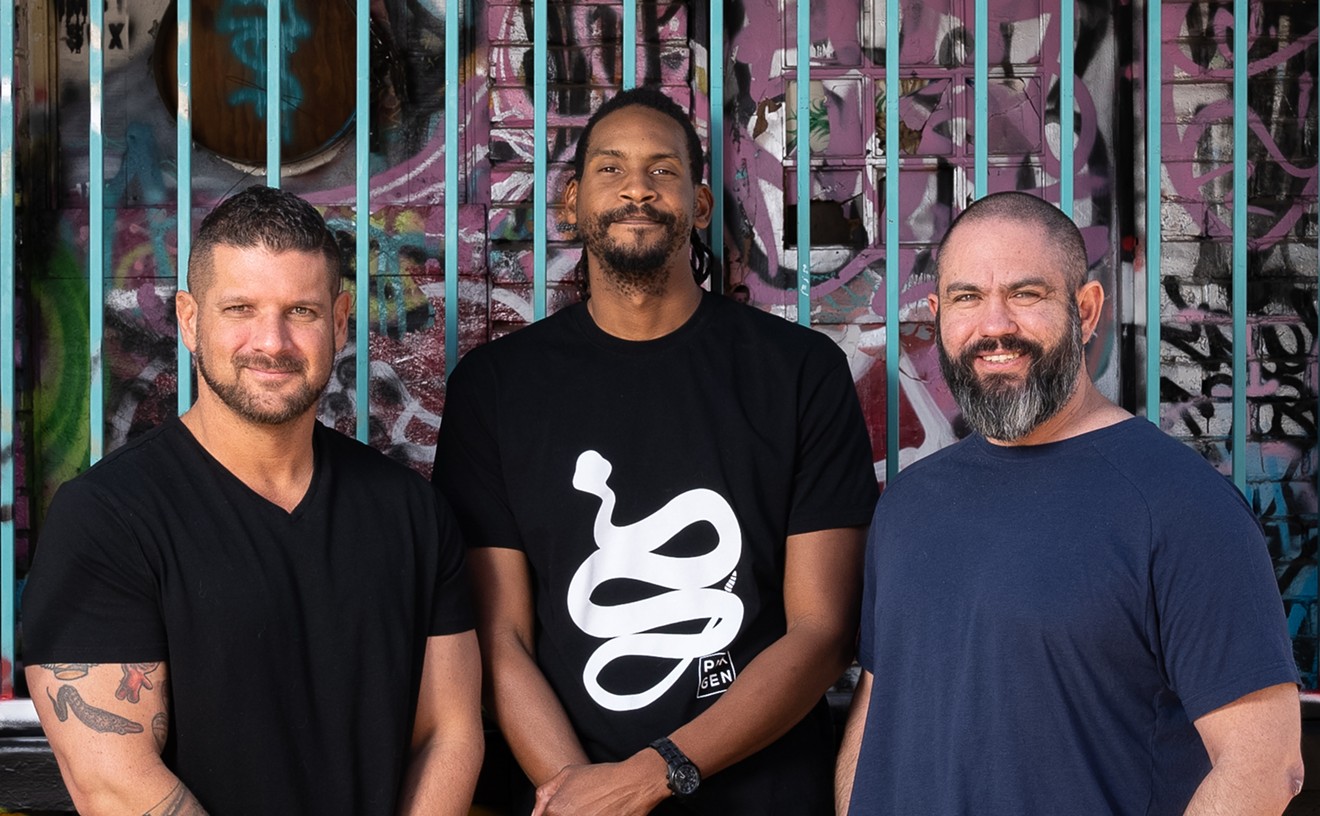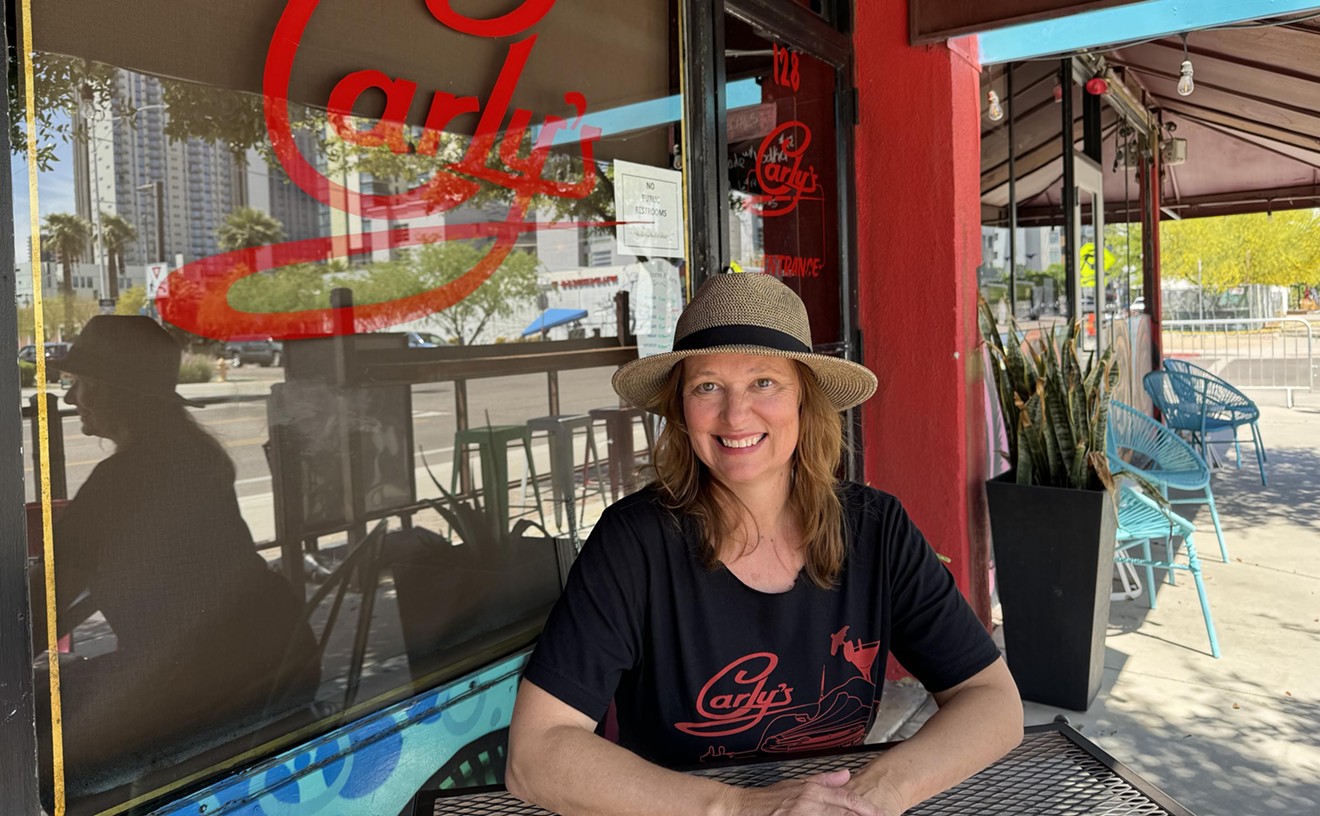If you're a relative novice, it can be difficult to know where to start. A quick trip to Phoenix Knife House at McDowell & Miller roads in Scottsdale and I was overwhelmed by the sheer number of choices. Santoku, bread knives, chef's knives, boning knives... If you've got a ton of cash to pluck down, you could buy a whole set, plus a solid wood knife block or a soft carrying case to keep 'em in. But when you're just learning to cook and can barely slice a potato without skinning your knuckles, best to start simple.
"If you're going to buy just one good knife, your best bet is a santoku or a chef's knife," says Phoenix Knife House owner Eytan Zias. "Both are good all-purpose knives that you can use to chop, dice, cut. The difference is in the curve of the blade." A chef's knife has a slight curve to the blade, while the santoku is straighter. Don't rule either style out until you've tried chopping with them.
Now it's time to talk size...
. Most chefs would argue that it's not about the size of your knife; it's about how you use it. That may be true, but if you start with a blade that's huge for your 5-foot-two frame, you might be uncomfortable. Then again, maybe you'll have no problem handling a monster one.
Zias started out by handing me several versions of the same knife in 8-inch, 10-inch and 12-inch sizes. I was instructed to pick them up, fondle the handle a bit to see how it feels in my hand, and try a chopping motion or two. "There are a few things to look for when picking a knife," explains chef and Chow Bella contributor Carol Blonder, who accompanied The Virgin on her quest for a new knife. "The size of the knife, and how it feels in terms of balance. It's all about the grip."
I made a few wild cuts as Zias and Blonder cringed and braced to call 9-1-1, but left with fingers intact and uncut. According to Zias, on some days I would've been in the minority -- he's had to make multiple emergency calls in one day when several chefs got too cocky and ended up slicing a finger or hand.
The Virgin eventually settled on an 8-inch size. Hey, 8 inches is nothing to sneeze at, boys!
Buy the best you can afford. I don't mean that you should automatically buy the most expensive knife in the place, if you can afford it. But better quality usually does come with a heftier price tag. Zias laid out a dozen or so santoku and chef's knives in order of steel quality, with the better Japanese blades generally being in the $150-200 range. The cheapest was about $40, and had the softest steel. Harder is generally better, though of course, there is such a thing as too hard.
Just ask anyone who's ended up in the hospital after taking one of those little blue pills. But I digress...
Tip #3: Be culturally biased. There's a real divide about who makes the best cooking knives. Zias prefers Japanese blades, while local chef Tracy Dempsey, for example, loves her original Wüsthof® set. It's like choosing between boxers and briefs: onlookers have their preference, but it's all about what's comfortable for you. Choose the brand, and the knife, you like best. "Bring a few carrots with you and try chopping them," advises Blonder.
After narrowing my choices down to two lovely Japanese santoku knives at Phoenix Knife House, Blonder and I went down the street to check out the selection at Sur La Table at Scottsdale Waterfront. The gourmet store provided carrots, so I didn't have to bring any. I tested out the Wüsthof and Henckels brands, which felt heavy and cumbersome in my small hands, and a 7" Global hollow-edge santoku that was delightfully light and easy to use, but came with a hefty price tag.
In the end, I went back for the cheaper and lighter of the Santoku knives I'd fallen for at Phoenix Knife House. How long will this baby last me? It's a lot like a relationship. "With the right care, it will last a lifetime," says Zias. "You should sharpen it, hone it with regularly with a steel, and wash it by hand."










